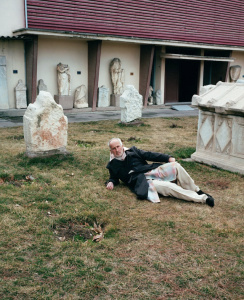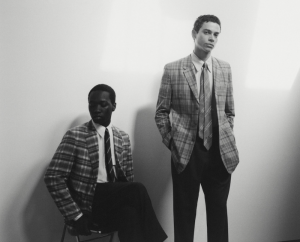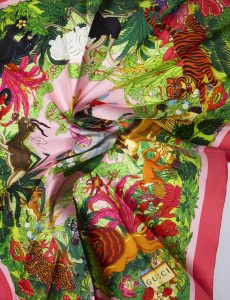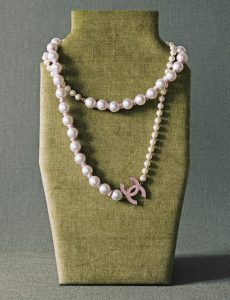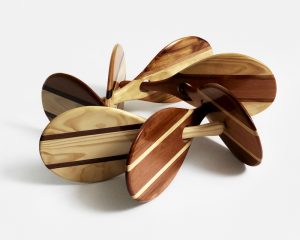In conjunction with the Sharjah Biennial, the fashion label announces the winners of its talent incubator programme
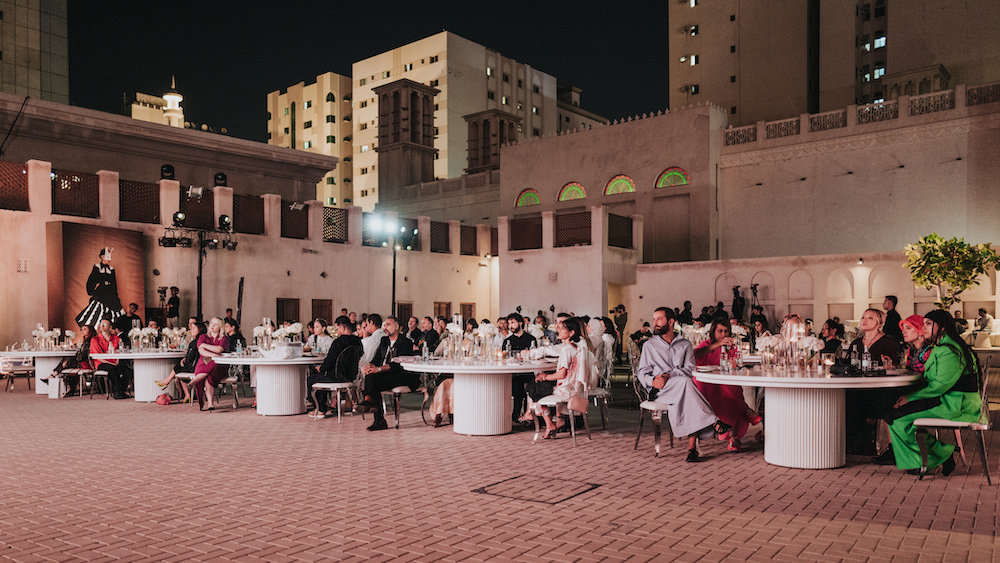
A “coming together” of the art and fashion worlds. Not a collision. That was the aim for curator, artist and director of Sharjah Biennial, Hoor Al Qasimi, when creating QASIMI Rising, the new talent incubator for emerging fashion designers. But fashion and art are like red and green. They clash at best, but crash, often. Independently both are vibrant, and in their various guises can be both alluring and repellant – but regardless demand attention. When mixed they can become murky, congeal into a bit of a mess that is unusable, unflattering and almost impossible to make good once again. But with QASIMI Rising, Qasimi intends to mix these often allergic worlds, incorporating the best shades from each. The aim is a harmonious, beautiful colour.
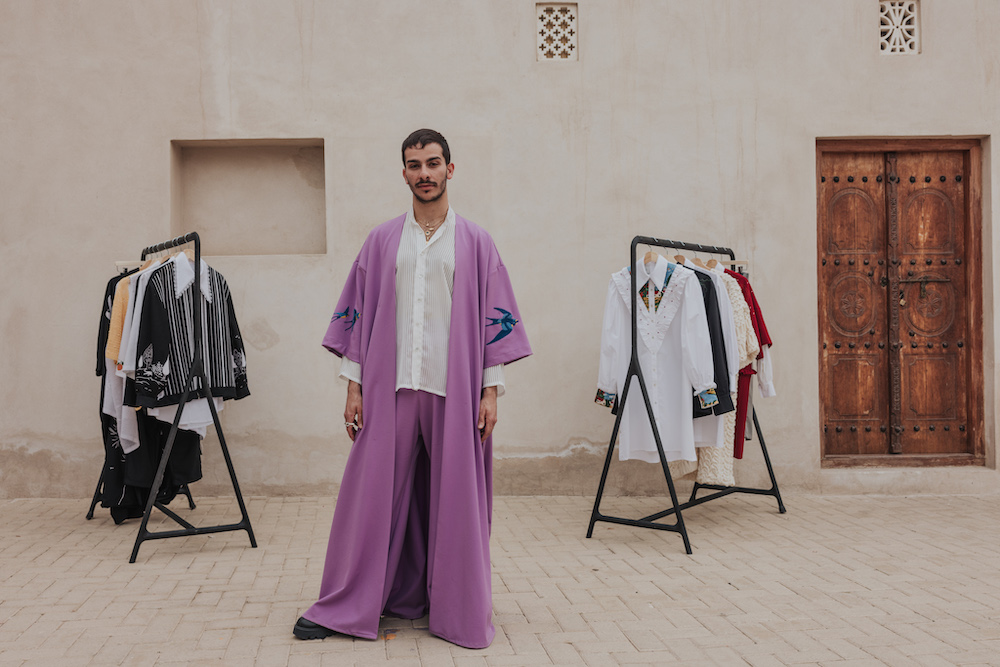
Launched in December 2022, the talent incubator provides two emerging designers the opportunity to be both financially and practically supported for three years. A holistic rather than cash driven approach is key, with the two selected brands being guided through product development, merchandising and marketing in order to create labels that can last without placing commerce over creativity. “You don’t want people to lose their creativity just because they’re trying to fit into a certain market… feeling like they’re losing their identity or catering to a perceived identity of who they are,” Qasimi says. The incubator continues beyond the brands infancy – the winning designers continue to receive mentorship for seven additional years after the initial three. True dedication to a brand is rarely provided with other similar initiatives, which often give support before selecting another designer to nurture the following year or two, so this is something that sets the Rising scheme apart. It is Qasimi’s decades of experience as both an artist and curator that makes the Rising incubator’s approach unique, however – what art allows is development, for things to marinate, whilst it is in fashion’s bombastic nature to greedily devour the fresh and raw. Something slow-cooked, something raw – it’s a contrast that creates an appealing plate. This year, the Sudanese designer Omer Asim and Lebanese designer Salim Azzam won the prize, with an award ceremony held during the Sharjah Biennial 15.
Qasimi reflects on making use of her multi-disciplinary curatorial expertise in the creation of this award: “What I do here (with the Sharjah Biennial) is always work with artists throughout – from early on in their career until now. There’s a continued relationship… this collaboration doesn’t get lost. The idea is to also do that in fashion… It’s not about being competitive, it’s about working together, and helping people become part of your family.” She continues: “Something that we can bring in (with the Rising award) is the artistic side, the creative side, we’re focusing on sustainability, on community, the craftsmanship… to really think about the designers and fashion in terms of artists and creatives, rather than just business makers.”
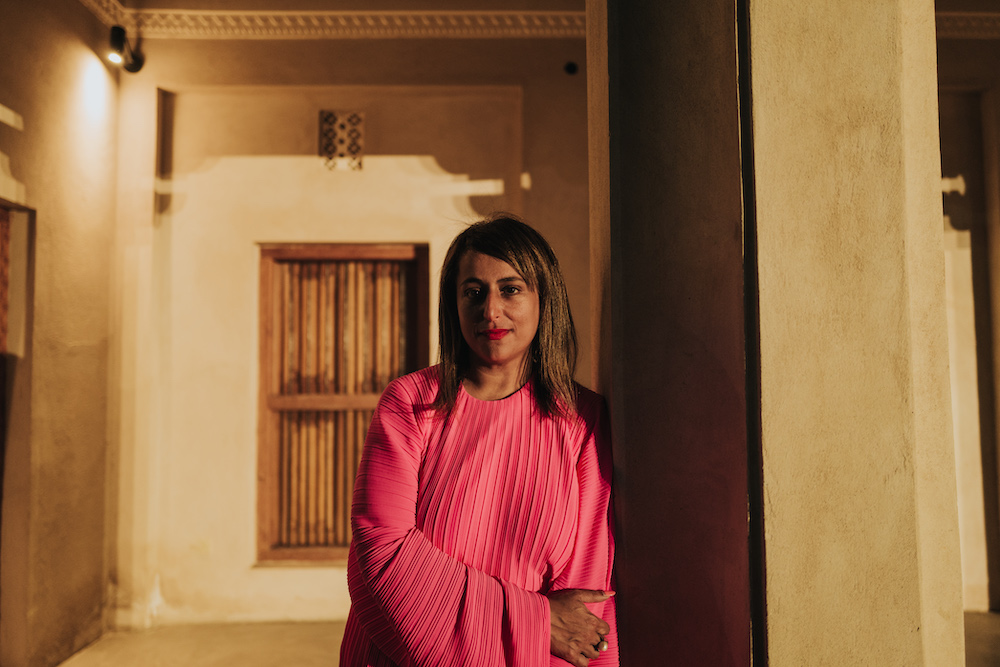
Necessity, they say, is the mother of invention. When Qasimi’s twin brother, Khalid Al Qasimi passed away in July of 2019, it was with a sense of necessity that Qasimi took over as creative director of his eponymous fashion label. Through this sudden tragedy, Qasimi was thrust into an unfamiliar world – fashion. “At the end of the day, my background is not in fashion, so I’m here to listen,” she says. “I didn’t want to assume I could come and change anything, because I didn’t know anything about the industry.” Ultimately, Qasimi found that “fashion is very disconnected from the way we work as artists… it’s not very accessible, it’s very difficult to connect.” Business, it can sometimes feel, is in the driving seat of the fashion industry, with creativity and design the pretty façade which encourages the consumer to throw cash at the fantasy. Meanwhile the art world has a tendency to look down upon fashion like its rowdy younger sibling, elite eyes rolling whilst simultaneously resenting fashion’s easy cool. And so the clash. But through harnessing the kind of longevity that art strives for (art, in general, increases in value over time, whilst fashion, in general, depreciates) and merging this into the existing fashion model can potentially do good. Fashion is too throwaway, and art is too staid, but together they could balance one another. It feels as though it is through Qasimi’s “disconnected” impression of the fashion industry when taking over label that the Rising project was conceived. There is no doubt that there is a clear “coming together” of two worlds here, a connecting if you will – connection being a running theme in many of Qasimi’s previous art-focused endeavours – and to bring this focus on connection into a new industry that she has entered seems a natural course to take. The very nature of hosting the Rising award ceremony during the time of the biennial immediately positions it as a fashion initiative with an injection of the kind of community that Qasimi has experienced in the art world. “I thought it would be great to have a cross over… I wanted to bring these energies together,” she states.
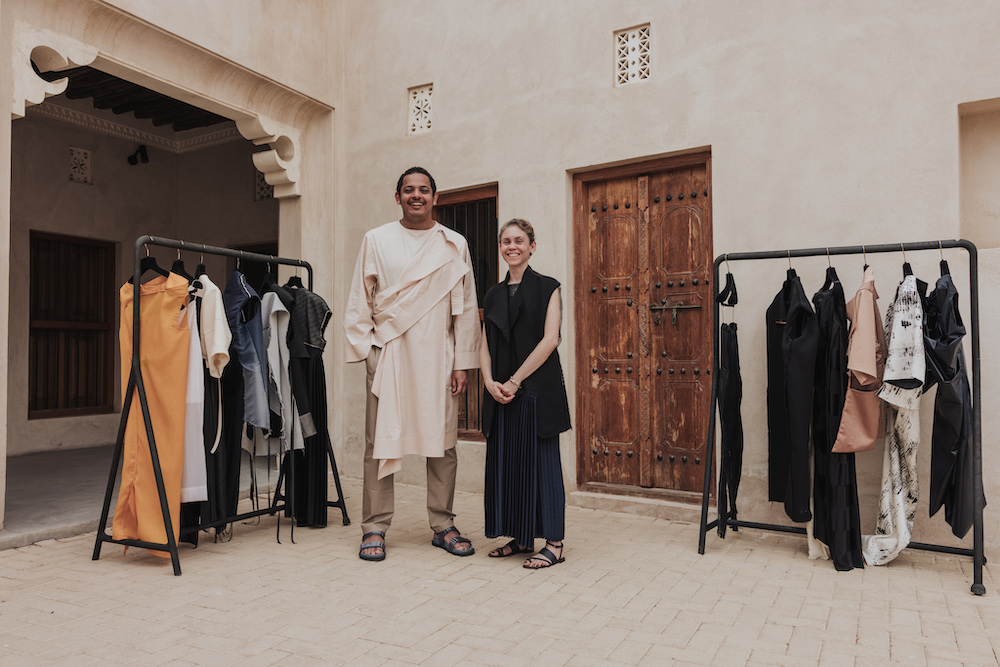
In 2005, critic Sabine Vogel wrote in Artforum that “Sharjah now belongs on the world stage alongside the most high-profile contemporary art biennials.” And it is through Qasimi’s direction that such a statement could be made – and this coming after just a few years of her taking leadership of the biennial. Her father, Sultan bin Muhammad Al Qasimi, is the sovereign ruler of the Emirate of Sharjah and created the biennial in 1993, with Qasimi taking the role of director in 2003. “I grew up with the Biennial,” she says. “It’s been my life… It started when I was 13, I participated when I was 15, then 17, and at 22 I took over by accident – I was asking too many questions so they said ‘do it yourself!’” On taking over, Qasimi made immediate moves such as the abolishing of national pavilions in favour of themes and commissioned works, and imbuing the event with a new international perspective. The Sharjah biennial being the vital date in the art world calendar that it is today creates an interesting prospect for Rising, its winners, and the fashion world in general. Qasimi had a powerful sense of what she wanted to achieve when taking over the biennial director role, something that must influence her in the Rising initiative? “I wouldn’t say influenced, I would say influencing… I don’t know yet, I’m still kind of working through it, it’s an experiment!”
Photography Aqib Anwar
